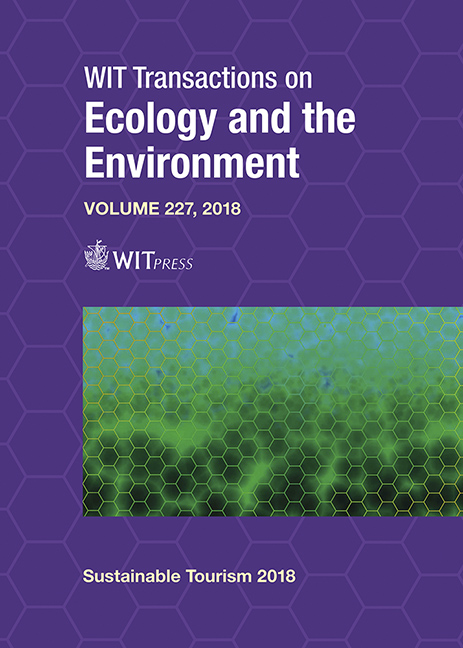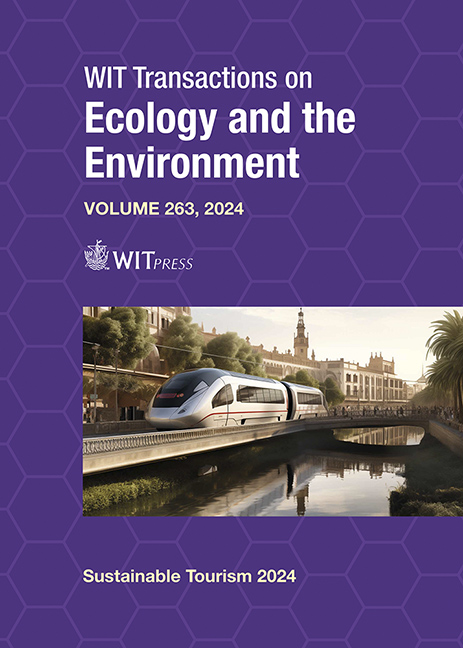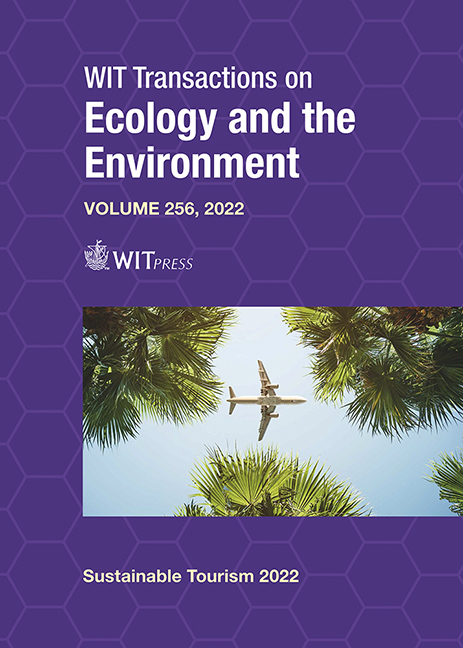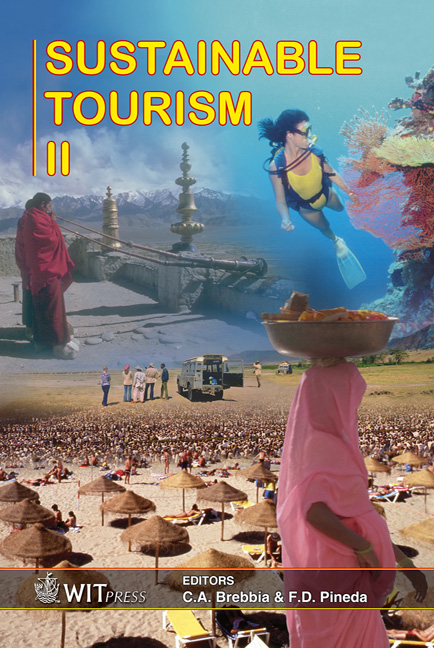Sustainable Tourism VIII
Edited By: S. Syngellakis, Wessex Institute, UK; U. Probstl-Haider, University of Natural Resources & Life Sciences, AUSTRIA; F. Pineda, Complutense University of Madrid, SPAIN
Price
£134.00 (free shipping)
ISBN
978-1-78466-255-4
eISBN
978-1-78466-256-1
Pages
298
Transaction Series
WIT Transactions on Ecology and the Environment
Transaction Volume
227
Published
2018
Format
Hardback
This volume includes papers from the 8th International Conference on Sustainable Tourism. Today tourism is becoming accessible to a growing number of people and is an important component of development, not only in economic terms but also for knowledge and human welfare. This collection of research aims to find ways to protect the natural and cultural landscape through the development of new solutions which minimise the adverse effects of tourism.
The phenomenon has many more advantages than disadvantages. New forms of economic development and increasing wealth of human societies depend on tourism. Our knowledge of the world now includes a strong component due to tourism. Human welfare has physiological and psychological elements, which tourism promotes, both because of the enjoyment of knowing new territories and increasing contacts with near or far away societies and cultures.
The tourism industry has nevertheless given rise to some serious problems, including social costs and ecological impacts. Many ancient local cultures have practically lost their identity. Their societies have oriented their economy only to this industry. Both the natural and cultural – rural or urban –landscapes have also paid a high price for certain forms of tourism. These problems will persist if economic benefit is the only target, leading to economic gains that eventually become ruinous. It is also a grave error to disregard the fact that visitors nowadays are increasingly demanding in cultural and environmental terms.
The ‘Global Change’ is a set of natural environmental changes that are strongly affected by technological and social developments. Natural changes are inherent in the Earth’s ecosystem (the ‘ecosphere’). Also, technological and social changes are inherent to mankind (the ‘noosphere’), and are now becoming widespread. Cities are growing rapidly and industry requires increasingly larger areas. Many traditional rural areas are being abandoned. Tourism should also play an important role in this context. Thus, interestingly, many historic agricultural districts have maintained, or even recovered, their local population numbers through intelligent strategies of tourism focused on nature and rural culture. Natural landscapes and biodiversity are becoming increasingly appreciated. The tourism industry must be able to respond to these aspirations.








